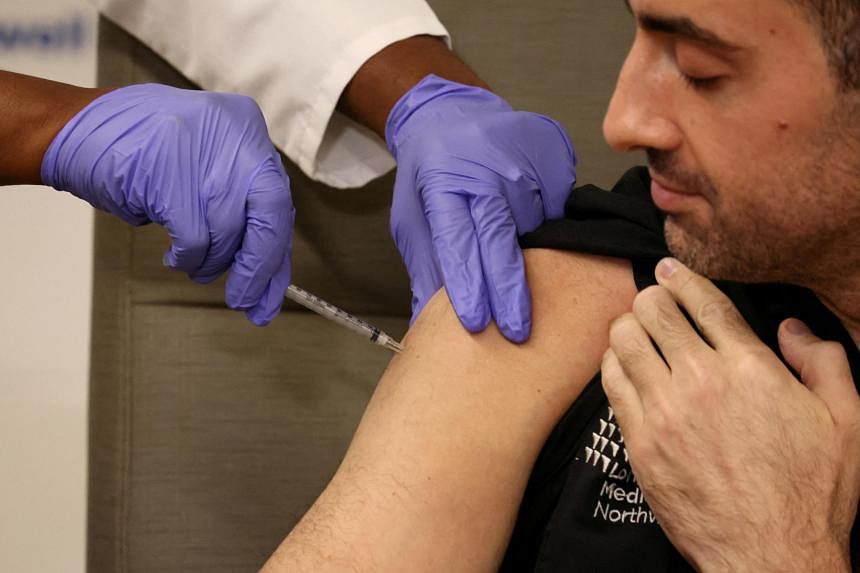NEW YORK - Ms Vero Lopez was excited about getting the new Covid-19 vaccine. She’s cautious about the virus, still carrying a mask around and avoiding indoor dining.
So Ms Lopez, 52, contacted her health care provider, Kaiser Permanente, as soon as she found out the shots were approved last week.
She couldn’t get the vaccine through it yet, but a CVS drugstore near her home in Los Angeles did have an appointment. After another call to confirm her insurer would reimburse her, she booked it.
Days later, she got a text from CVS: Her appointment had been cancelled.
More than a week after new Covid-19 vaccines were approved and recommended for all Americans aged 6 months and older, some are having trouble getting the shots.
Insurance companies are denying coverage, with some blaming the difficulties on billing codes. Pharmacies are cancelling some appointments because the drugs haven’t arrived.
And because the government is no longer paying for everyone’s vaccine, headaches around in- and out-of-network coverage are adding to the confusion.
This is the first commercial Covid-19 vaccine roll-out since the start of the pandemic, marking the beginning of a newly privatised era for the drugs.
Millions of doses have been shipped as hospitalisations rise. But, as with the earlier Covid-19 vaccines, actually getting shots in arms has proved tricky.
“We’ve heard these stories, and we’ve contacted the insurers,” said Mr Xavier Becerra, the US health and human services secretary, at a press event Wednesday, where he received his own updated vaccine.
He stressed that anyone with Medicaid, Medicare or private insurance should have the shot covered without a copayment, and that anyone without insurance could request a free shot at pharmacies participating in the Bridge Access Programme. “We’ve contacted the pharmacists, and we’re working with them to make sure everyone understands how this works,” Mr Becerra said.
Coverage is delayed for some people because the billing codes for the updated vaccines were not uploaded “in a timely manner,” said Ms Danielle De Souza, a representative for the New York State Department of Health.
Insurance companies are working to fix the billing issues, said Mr James Swann, a representative for AHIP, a national association of health insurance companies.
Anthem Blue Cross Blue Shield said Thursday that its payment systems were now updated. A representative for Cigna Healthcare said that “most” claims were correctly processing.
Several of the nation’s largest pharmacy chains acknowledged a challenging rollout. CVS, Walgreens and Safeway pharmacies have had to cancel and reschedule some appointments because of delayed shipments of the vaccines, the companies said.
Other providers delayed making the shots available. Rite Aid said new vaccines would be in stores by this weekend; Kaiser Permanente said it would largely not administer Covid-19 shots until next week.
Mr Kit Longley, a representative for Pfizer, said in an e-mail that the company was not experiencing any shortages of its vaccine and had delivered several million doses.
Moderna released a statement Thursday saying it had also shipped millions of updated vaccines and was working to support distributors to ensure the doses got delivered.
“We’ve gone from the federal government steering and driving vaccine supply and coverage to it being pushed out through regular market channels like it’s just another health care product,” said Dr Lindsay Allen, a health economist at Northwestern Medicine.
Ms Cynthia Cox, a vice-president at KFF, the health policy non-profit formerly known as the Kaiser Family Foundation, expressed frustration that some insurers had failed to update their systems in time, even though the billing codes were released over a month ago.
“This is a somewhat unprecedented situation,” she said. “I think there’s some understanding that there could be hiccups. But at the same time, we’re three years into this, and insurers and pharmacies have had months to prepare.” NYTIMES

